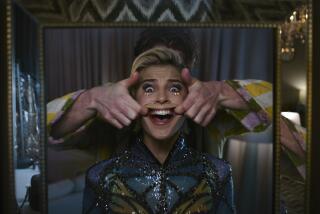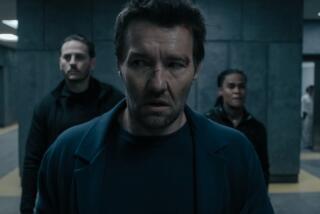Opinion: Evil twins are a thing right now. Hollywood has us seeing doubles for a reason
In Hollywood, stories come in cycles. Winston Churchill biopics, mall cop comedies or blockbusters about attacks on the White House get released within months of each other. TV creators and filmmakers offer up parallel versions of the Getty grandsonâs kidnapping, and tales of similar mysterious, sense-triggered forces (âA Quiet Placeâ and âBirdboxâ).
The reason for these overlapping projects isnât that studios or networks are looking to copy their rivals â theyâd prefer to be unique. Itâs that writers and producers canât help but tap into whatâs in the air. The zeitgeist is real.
With the near-simultaneous releases this month of Paul Ruddâs Netflix series âLiving With Yourselfâ and Will Smithâs feature âGemini Man,â we are now deep into a story cycle about evil twins, second selves and doppelgangers. Add to these projects âCounterpart,â whose final episode aired on Starz in February, Jordan Peeleâs movie âUs,â and a little earlier, the âTwin Peaksâ reboot on Showtime, and itâs clear duality is in the cultural ether.
In each of these stories, the second selves pose a threat to the originals, taking over their most important relationships, or trying to end their lives. The evil twins are more confident, more cunning and physically stronger. They arenât riddled with indecision or guilt â doppelgangers donât equivocate or compromise. They are vastly superior to the original models in every way but one.
They lack souls.
Yes, they function better. Theyâre better at getting â or taking â what they want, but something essential is missing. They have none of the self-defeating quirks, none of the internal messiness, that makes humans human. They are devoid of depth and vulnerability.
Why are Hollywood writers telling these stories? What are they reacting to? Why have so many recent projects independently seized on the same theme?
The answer is likely found in our daily, even hourly, subservience to our own second selves. In gaming and on social media, we have allowed avatars and doppelgangers to take over. We arenât living our best lives, they are. And theyâre doing it at our expense.
Itâs not just a millennial, digital native problem. Too many of us of every generation are slavishly architecting and updating versions of ourselves that appear remarkably successful, happy and loved. These filtered images and stories donât depict our flaws or shortcomings, unless they are winkingly self-effacing. Look, Iâm so cute, I just fell off my paddleboard in Kauai!
Every time we post or tweet this way, our prettiest pictures and our wittiest thoughts belong to them, not us. Our doppelgangers get liked and followed and retweeted. We end up feeding off their scraps, chasing the tail of our avatarsâ popularity. We are complicit in our own oblivion.
The story line Hollywood has tapped is an antidote to the alarming and heartbreaking tendency of people across cultures and continents to tether themselves to their more perfect, less real and less interesting facsimiles. It only makes sense that writers would be on the offensive: Good stories require real characters â complicated, unvarnished, flawed.
Think about the best films or series youâve seen. Whether comedic or tragic, they probably involve leads whose flaws impede the full realization of their happiness. From Bridget Jones to Walter White, from âFriendsâ to âFleabag,â the messiness is what makes for a relatable, universal human experience. We are connected by our common failings, our inevitable self-inflicted suffering, and that connection is the wellspring of empathy.
When too-perfect doppelgangers dominate our lives, and we exist to service them, we may add followers and friends, but we lose each other.
Ethan Drogin is a television writer, most recently an executive producer on âSuits.â
More to Read
A cure for the common opinion
Get thought-provoking perspectives with our weekly newsletter.
You may occasionally receive promotional content from the Los Angeles Times.










